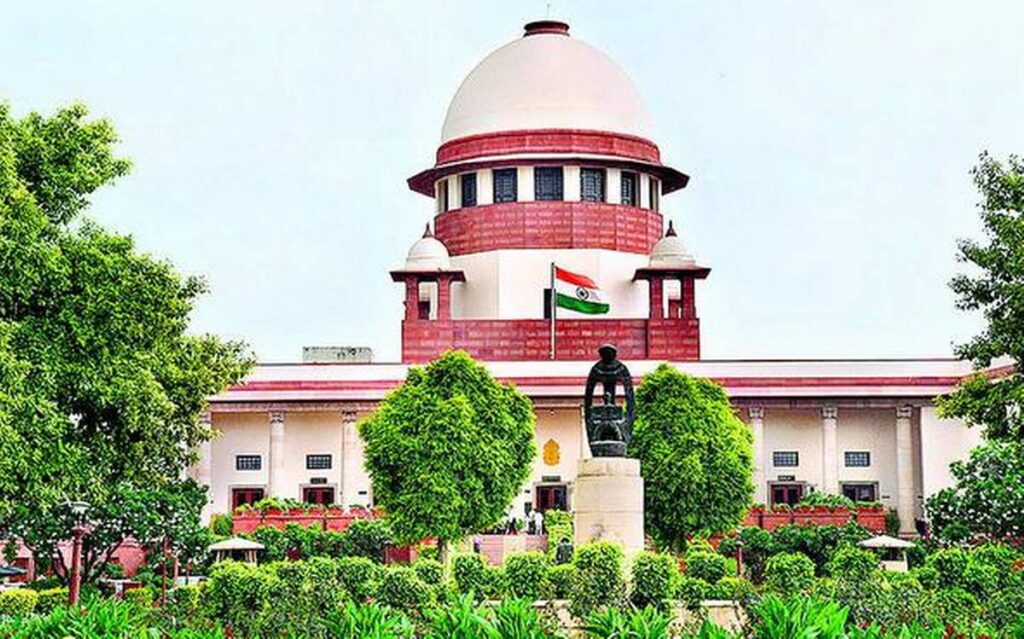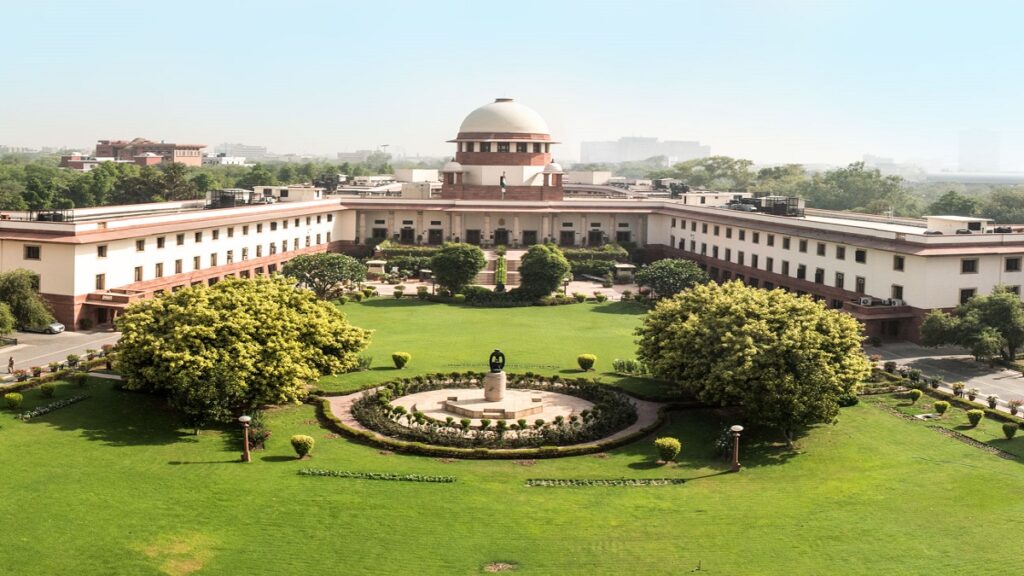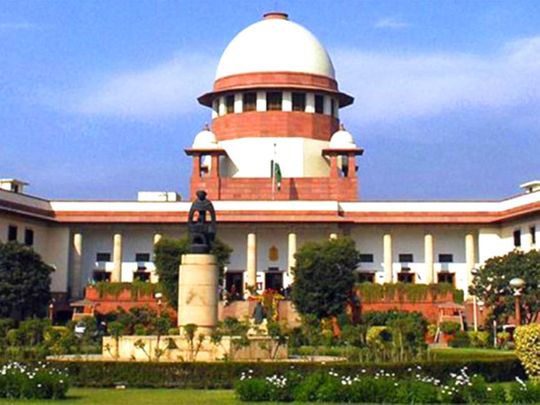
People anxiously anticipated the Supreme Court’s ruling on same-sex marriage’s legalization in India with bated breath, holding their breath to learn the conclusion reached by Chief Justice of India Dipak Misra and a panel of five judges. The other three judges—Justice Bhatt, Justice Khole, and Justice Narasimha—who rendered a majority decision against it disagreed with Justice Chandrachud and Justice Kaul’s support for the rights of the LGBTQ+ Amazon Link https://www.amazon.com/NUBWO-Wireless-Crystal-Clear-Microphone-Ergonomic/dp/B08TBF4S42/?_encoding=UTF8&pd_rd_w=bveGW&content-id=amzn1.sym.61d4ee60-9341-4d7a-912d-bc661951aa32&pf_rd_p=61d4ee60-9341-4d7a-912d-bc661951aa32&pf_rd_r=N8174EFD74ATR0P9GEPH&pd_rd_wg=BoDN2&pd_rd_r=9c6efab0-d5fc-4e39-8b25-2673d1b934db&ref_=pd_gw_cr_simh&th=1

Table of Contents
“Supreme Court Upholds LGBTQ+ Rights, Encourages Parliament to Amend Special Marriage Act”

The Special Marriage Act should be amended by Parliament, according to Chief Justice of India Dipak Misra, who was presiding over the hearing of 21 petitions calling for the recognition of same-sex weddings. The court cannot make laws; it can only interpret them.
“Supreme Court’s Landmark Decision: LGBTQ+ Equality and Empathy for a Discrimination-Free Society”
The Supreme Court called for greater empathy from the public, while simultaneously recognizing the equality of the LGBTQ+ community’s rights and protection from discrimination.
The Supreme Court highlighted that marriage is not a “fundamental right” and that same-sex couples cannot claim it as such under the Constitution in four distinct but unanimous rulings.
“Supreme Court Directs Government: Committee to Examine LGBTQ+ Rights and Zero Tolerance for Discrimination”
The government was ordered by the Supreme Court to form a committee to look into issues pertaining to these rights. Additionally, it was mandated that neither the federal nor state governments permit discrimination based on sexual orientation.
The states have been ordered by the Supreme Court to educate the public about LGBTQ+ rights and set up a helpline for them. Diversity, according to Chief Justice Dipak Misra, is not only a characteristic of metropolitan areas or the affluent classes, nor is it just a feature of affluent societies or marginalized groups.

The Supreme Court has also instructed the police to hold off on filing any charges against same-sex couples until they have completed their first investigations. According to CJI Chandrachud, “The police will not call the LGBTQ+ community to the police station just to question them about their sexual orientation.”
“Supreme Court’s Ruling: Upholding LGBTQ+ Autonomy, Bans Forced Therapy and Rejection”
According to the court’s decision, members of the LGBTQ+ community cannot be made to undergo hormone therapy or return to their family.The CJI has given the government instructions to prevent forcing intersex youngsters to undergo gender reassignment surgery.
The Supreme Court of India’s historic decision is an important step in recognizing and defending the rights and dignity of the LGBTQ+ community. It also emphasizes how crucial understanding and empathy are among the general public. A ray of hope for a more inclusive and progressive India is the court’s emphasis on equality, non-discrimination, and the protection of LGBTQ+ rights.
“Landmark LGBTQ+ Rights Verdict in India: Embracing Love and Equality”
The LGBTQ+ community has long endured persecution, legal troubles, and social shame in India. This decision acknowledges that people have the freedom to love and wed anybody they want, regardless of gender, and marks a significant change in the legal landscape. It displays the judiciary’s growing perspective and dedication to upholding the rights and dignity of all citizens in India.
In addition to decriminalizing homosexuality, this ruling has also made it possible for same-sex weddings to be recognized. In a culture that has frequently grappled with prejudice and intolerance against the LGBTQ+ population, it has the power to bring about dramatic change by encouraging inclusiveness and acceptance.

A critical step in fostering acceptance and understanding is the Supreme Court’s direction to the government to raise awareness about LGBTQ+ rights and establish a helpline. The government may significantly contribute to removing obstacles and prejudice by educating the people and offering support systems.
An important defense against harassment and abuse is the directive to police not to pursue criminal charges against same-sex couples without conducting initial investigations. It guarantees that law enforcement organizations preserve justice’s fundamental values and defend all citizens’ rights, regardless of their sexual orientation.
The decision also emphasizes how crucial it is to respect a person’s freedom to self-identify and make choices regarding their own body. The court has taken a position against pointless medical procedures that can result in injury and anguish by forbidding gender reassignment surgery for intersex kids.
“India’s Historic Moment: Supreme Court Affirms LGBTQ+ Rights and Equality”
Finally, it should be noted that India is experiencing a historic time with the Supreme Court’s decision to acknowledge the rights of the LGBTQ+ population and open the door for same-sex unions. It represents a shift toward a society that is more caring and inclusive and in which everyone is treated with respect and dignity. This decision provides a good example for a more welcoming and diversified India and supports the progressive principles of justice and equality.

2 thoughts on ““Supreme Court Directives: Safeguarding Queer Rights and Promoting Public Awareness””